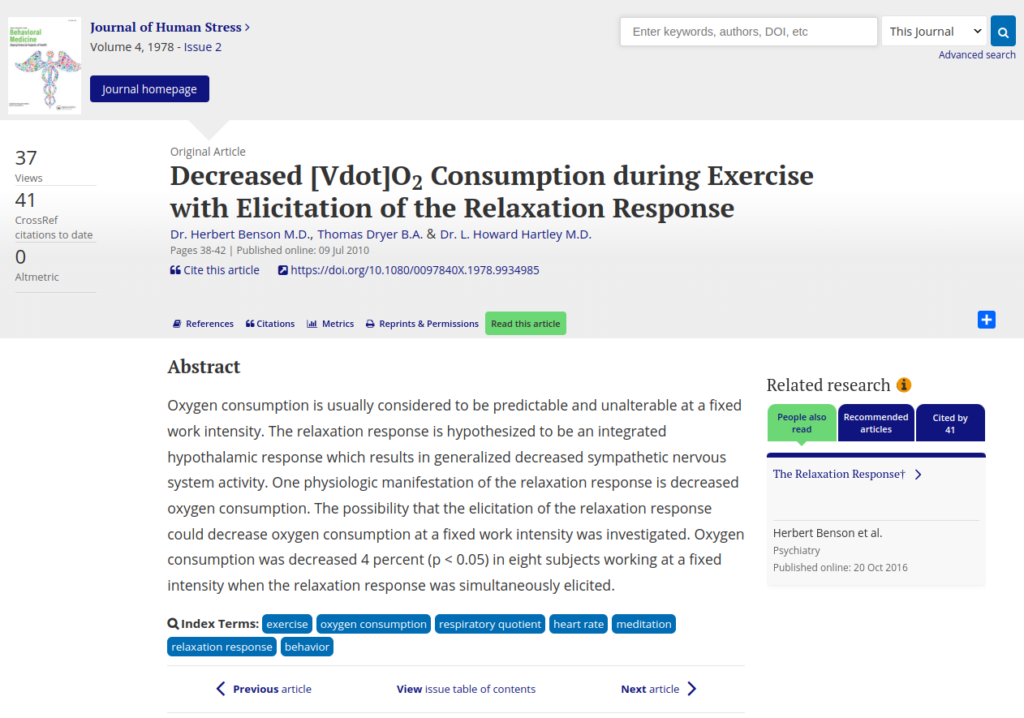Publication
Journal of Human Stress
Vol 4, Issue 2
Abstract
Oxygen consumption is usually considered to be predictable and unalterable at a fixed work intensity. The relaxation response is hypothesized to be an integrated hypothalamic response which results in generalized decreased sympathetic nervous system activity. One physiologic manifestation of the relaxation response is decreased oxygen consumption. The possibility that the elicitation of the relaxation response could decrease oxygen consumption at a fixed work intensity was investigated. Oxygen consumption was decreased 4 percent (p < 0.05) in eight subjects working at a fixed intensity when the relaxation response was simultaneously elicited.
Web and Email Links
Related Listings
Journal
International Journal of Cardiology
We report extremely prominent heart rate oscillations associated with slow breathing during specific traditional forms of Chinese Chi and Kundalini Yoga meditation techniques in healthy young adults. We applied both spectral analysis and a novel analytic technique based on the Hilbert transform to quantify these heart rate dynamics. The amplitude of these oscillations during meditation was significantly greater than in the pre-meditation control state and also in three non-meditation […]
Journal
Psychosomatic Medicine
Oxygen consumption, carbon dioxide production, and respiratory rate are significantly decreased during the practice of a new, easily-learned relaxation technique. The elements of the technique are a mental device to prevent distracting thoughts, a passive attitude, decreased muscle tonus, and a quiet environment which is as free of visual and auditory stimuli as possible. Sitting quietly with the eyes either open or closed failed to produce the same changes. These physiologic changes […]
Journal
Obstet Gynecol
During a 5-month study, we examined the effects of the relaxation response on premenstrual syndrome in 46 women who were randomly assigned to one of three groups: a charting group, a reading group, and a relaxation response group. The relaxation response group showed significantly greater improvement than the charting and the reading groups on physical symptoms (P less than .025 for both comparisons). There was a significant group-by-severity effect for charting versus relaxation resp […]

